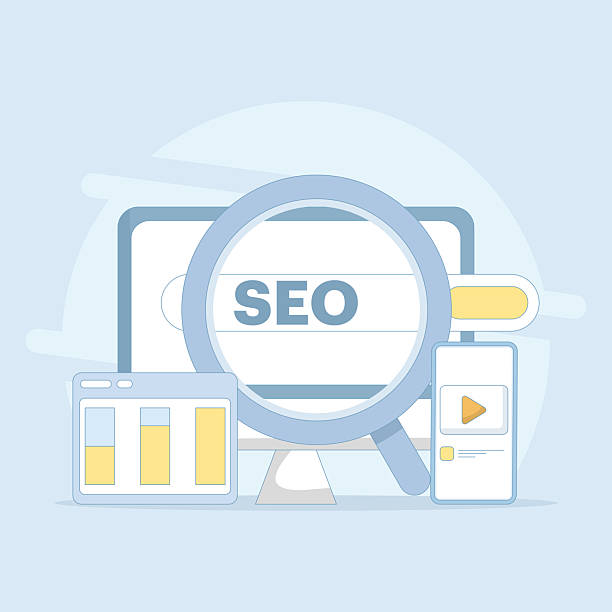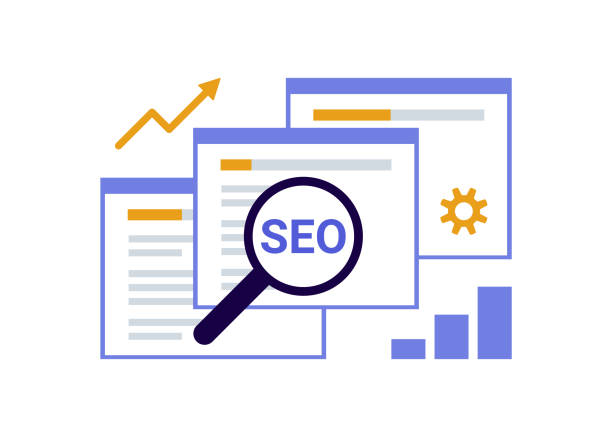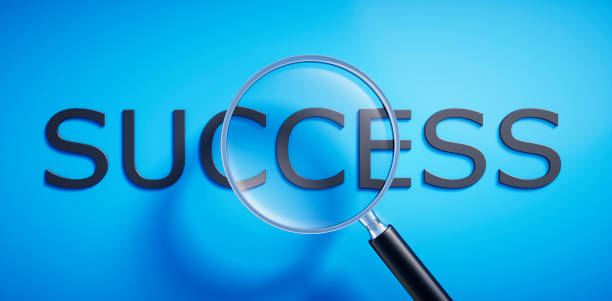Off-Page SEO: Why and How? Understanding the Fundamentals of Off-Site Optimization

In today’s highly competitive web world, simply having a beautiful website and great content is not enough.
For your site to be seen among a plethora of competitors and to gain a suitable position in search engine results, it requires comprehensive and targeted optimization strategies.
One of the fundamental pillars of this optimization is Off-Page SEO, or off-site optimization.
#Off_page_SEO refers to a set of activities performed outside your website to improve its ranking in search engine results pages (SERP).
The main goal of #Off_page_SEO is to increase your #Domain_Authority and #Site_Authority with search engines.
These activities show search engines that your content is valuable, credible, and trustworthy, and is referenced by others.
In fact, Off-Page SEO acts like a vote of confidence from other websites for your site.
Each quality backlink is like a recommendation from a reputable source telling the search engine that your website has good content and deserves a higher ranking.
Without strong Off-Page SEO, even the best on-page content may never reach its true potential and get lost in search results.
Therefore, if you are looking for sustainable success in the online space, understanding and correctly implementing the principles of Off-Page SEO is of vital importance.
This explanatory and educational approach provides the necessary foundations to start this journey.
Tired of losing customers due to poor e-commerce website design? With RasaWeb, solve this problem forever!
✅ Increase sales and conversion rate of visitors to customers
✅ Smooth and attractive user experience for your customers⚡ Get Free Consultation
The Backbone of Off-Page SEO: Building Powerful Backlinks

When it comes to Off-Page SEO, the first and most important element that comes to mind is a Backlink, or inbound link.
Backlinks are essentially links from other websites to your website.
These links for search engines like Google, act as a “vote of confidence”.
The greater the number and quality of backlinks pointing to your site, the more its Domain Authority (DA) increases in the eyes of search engines.
This increase in authority directly impacts your site’s ranking in search results.
The important point is that not all backlinks have the same value.
The quality of a backlink is more important than its quantity.
Backlinks from reputable sites, relevant to your industry, and with high traffic are much more valuable than low-quality and spammy links.
Also, the type of backlinks is important; Dofollow links allow search engines to pass authority to your site, while Nofollow links usually do not pass this authority, but can still increase traffic and brand awareness.
Building strong backlinks requires strategy and continuous effort and is considered a specialized activity in the field of SEO.
Understanding this concept is vital for anyone looking to improve their position in search results.
This section specifically and educationally addresses this important topic.
Types of Backlinks and Their Quality Assessment Criteria

For success in Off-Page SEO, understanding the types of backlinks and their quality assessment criteria is essential.
Simply collecting links is not enough; you must ensure these links genuinely help improve your ranking.
Common link-building methods include: Guest Posting, which involves writing articles for other websites and receiving a backlink in return; Broken Link Building, where you identify broken links on other sites and suggest replacing them with your content; directory submissions; and Press Release distribution.
Backlink quality assessment criteria include the Domain Authority (DA) and Page Authority (PA) of the linking site, topical relevance, link placement on the page (in content or footer), Anchor Text, and the absence of spam from the source site.
A good backlink from a reputable and relevant site has far more power than several low-quality and irrelevant backlinks.
Ignoring these criteria can harm your site instead of improving its ranking.
To better understand the differences between backlink types and their impact on Off-Page SEO strategy, review the table below:
| Type of Backlink | Description | Advantages | Potential Disadvantages |
|---|---|---|---|
| Guest Posting | Writing articles for other sites and getting a link in return. | High-quality and relevant links, increased authority and targeted traffic. | Requires time and effort to produce content and find suitable sites. |
| Broken Link Building | Identifying broken links and suggesting your content as a replacement. | Effective method for gaining links from reputable sites, helpful for webmasters. | Time-consuming process of finding broken links and establishing contact. |
| Directory Links | Submitting your site to web directories (usually general or specialized). | Gaining initial links, improving local ranking (for local directories). | Many directories have lower SEO value, risk of spamming. |
| Press Release Distribution | Distributing company news and announcements to gain media coverage and links. | Increased brand awareness, gaining links from news outlets. | Many links are Nofollow, requires real and engaging news. |
Modern Strategies for Effective Backlink Building

Link Building forms the core of Off-Page SEO and requires the adoption of smart and ethical strategies for sustainable success.
One of the most effective methods is content marketing.
Producing valuable, unique, and engaging content that is naturally shared by others and linked to, is the best type of link building.
This includes infographics, case studies, free tools, and in-depth analytical articles.
Another strategy is to create linkable assets and then conduct outreach campaigns with relevant websites and blogs.
In this method, you contact webmasters and site owners and introduce your content for review and potential linking.
Also, analyzing competitor backlinks can reveal new opportunities for you; by examining the backlink profile of your competitors, you can find sources that have linked to them and then try to get links from the same sources.
Participating in relevant specialized forums and providing helpful answers that lead to referencing your content can also be effective if done correctly.
These guidelines are crucial for running a successful Off-Page SEO campaign.
Do you dream of a thriving online store but don’t know where to start?
RasaWeb is your comprehensive solution for e-commerce website design.
✅ Attractive and user-friendly design
✅ Increased sales and revenue⚡ Get Free Consultation Now!
The Role of Social Signals and Brand Mentions in Strengthening Off-Page SEO

Although backlinks still form the backbone of Off-Page SEO, other factors also indirectly affect your site’s credibility and visibility.
One of these important factors is Social Signals and brand mentions.
Directly, content shares on social networks like Twitter, LinkedIn, Facebook, and Instagram do not act as direct ranking factors in Google.
However, indirectly, these signals can lead to increased visibility of your content, attracting more traffic, and ultimately, earning natural and high-quality backlinks.
When your content is widely distributed on social networks, the likelihood of bloggers, journalists, and influencers in your field seeing it and linking to it increases significantly.
Similarly, Brand Mentions, even if not in the form of links, can help search engines understand the popularity and credibility of your brand.
Every time your brand name or products are mentioned on websites, forums, or even in online media, without necessarily linking to your site, it helps increase brand awareness and your credibility.
These activities are part of an Off-Page SEO strategy that provides explanatory and educational content, showing how creating “hype” and online reputation can complement backlinks.
The Connection Between Local SEO and Off-Page SEO Strategies

For businesses operating locally, Local SEO is of particular importance and has a close connection with Off-Page SEO.
While Local SEO primarily focuses on optimizing your online presence for local searches (such as “restaurant near me” or “repairman in Tehran”), many of its elements are actually outside your website and in some way contribute to Off-Page SEO.
The most important of these elements are Local Citations.
A citation refers to any mention of your business’s Name, Address, and Phone number (NAP) on other websites, even without a link.
Registering your business in local directories, review sites (like Yelp, Google Maps), and chambers of commerce, are all examples of local citations.
These citations help search engines confirm the existence and accuracy of your business information and in turn, increase your local credibility.
Furthermore, customer reviews on your Google My Business (GMB) profile and other platforms also play an important role.
Positive reviews not only attract potential customers but also serve as a strong signal to Google that your business is active and reputable.
Actively managing GMB, responding to reviews, and encouraging customers to leave reviews, are part of the Off-Page SEO strategy for local businesses that specifically and guide-like help improve their visibility.
Measuring Performance and Analyzing Results of Off-Page SEO Campaigns

After implementing Off-Page SEO strategies, the next crucial step is measuring and analyzing performance.
Without accurate measurement, you cannot understand which of your efforts have been effective and where improvements are needed.
Various tools are available for this purpose to help you monitor your backlink profile and its impact on site ranking.
Metrics such as Domain Authority (DA) and Page Authority (PA) from MOZ, Domain Rating (DR) from Ahrefs, or Trust Flow/Citation Flow from Majestic, are key indicators for evaluating the credibility of your links and your site.
The number of Referring Domains, the number of new backlinks, the backlink growth rate, and also monitoring the ranking of target keywords in search results, are all important metrics that should be regularly reviewed.
Furthermore, analyzing organic traffic to your site in tools like Google Analytics and Google Search Console shows whether your Off-Page SEO efforts have led to an increase in visitors through search.
A successful Off-Page SEO campaign should ultimately lead to increased traffic, improved keyword rankings, and overall online business growth.
This analytical and specialized process is essential for continuous optimization.
The table below shows some of the most important metrics for measuring Off-Page SEO performance:
| Metric | Description | Importance in Off-Page SEO | Monitoring Tools |
|---|---|---|---|
| Domain Authority (DA/DR) | A score indicating the overall credibility and strength of your domain. | Key indicator of site strength in search engines, main goal of link building. | Moz, Ahrefs, Semrush |
| Number of Referring Domains | The number of unique websites that have linked to your site. | Shows the diversity and breadth of the backlink profile. | Ahrefs, Semrush, Google Search Console |
| Keyword Ranking | Your site’s position in search results for target keywords. | Direct impact of Off-Page SEO on visibility and traffic generation. | Google Search Console, Semrush, Ahrefs |
| Organic Traffic | The number of visitors who came to your site through natural search. | Indicates the ultimate success of SEO strategies. | Google Analytics |
| Spam Score | The likelihood of a domain being spam based on various criteria. | Monitoring for identifying and disavowing harmful links (Disavow). | Moz, Semrush |
Common Mistakes in Off-Page SEO and Ways to Avoid Them

In the process of implementing Off-Page SEO strategies, mistakes can occur that not only fail to improve site ranking but can also severely harm it.
One of the most common and dangerous mistakes is buying low-quality and bulk backlinks.
This action, known as Black Hat SEO tactics, can lead to severe Google penalties (such as the Penguin penalty), drastically reducing your site’s ranking or even removing it from search results.
Another mistake is focusing solely on the quantity of links instead of their quality.
Dozens of worthless backlinks from spammy or irrelevant sites are never as valuable as one high-quality backlink from a reputable and relevant site.
Also, over-optimization of Anchor Text by precisely matching the keyword, can be a signal of unnatural link building and again lead to penalties.
Ignoring diversity in the backlink profile (i.e., getting links from various types of sites and methods) can also be problematic.
Failure to monitor existing backlinks and identify harmful or broken links is another mistake.
To avoid these problems, always focus on natural, ethical, and value-based link building.
Your primary goal should be to provide excellent content that naturally attracts links and sends positive signals to search engines.
This section provides educational and guiding best practices to avoid these pitfalls.
Are you disappointed with your online store’s low conversion rate?
RasaWeb, with professional e-commerce website design, is your definitive solution!
✅ Increase your sales and revenue
✅ Unparalleled user experience for your customers
⚡ Get a free consultation now!
The Future of Off-Page SEO and Upcoming Trends

The world of SEO is constantly changing and evolving, and Off-Page SEO is no exception.
With every Google algorithm update, the need to understand new trends and adapt strategies becomes greater.
In the future, we can expect search engines’ emphasis on the quality and semantic relevance of backlinks to increase even further.
Simply having a large number of backlinks, without regard to the source content and how it was acquired, will no longer be sufficient.
Google is looking for a deeper understanding of a website’s true credibility and reputation.
The role of Artificial Intelligence (AI) in understanding content and connections between websites, will become even more prominent.
This means that backlinks placed within valuable, relevant, and natural content will gain more importance.
Non-linked brand mentions and signals related to Brand Authority will also likely play a more significant role.
Search engines will be able to detect a brand’s popularity through direct searches for its name, mentions of the brand name on social media and websites, and user feedback.
This news and analytical trend indicates that Off-Page SEO is moving towards a more comprehensive and natural approach, where building real credibility and being recognized as a reliable source will be the key to success.
Integrating Off-Page SEO with On-Page SEO for Best Results

To achieve maximum potential in search engine results, Off-Page SEO should never be seen as a separate and isolated strategy.
In fact, true success in SEO results from complete integration and synergy between Off-Page SEO and On-Page SEO.
On-Page SEO deals with optimizing elements within your website, such as content, keywords, site structure, loading speed, and user experience.
Off-Page SEO transfers credibility and authority to your site, while On-Page SEO ensures that this authority is properly directed and the target content is optimized for users and search engines.
A website with a weak internal structure, inappropriate content, or slow speed, even with the best external backlink profile, cannot achieve top rankings.
On the other hand, a site with excellent On-Page SEO but no external backlinks, can never gain the necessary credibility to compete for difficult keywords.
Internal Linking is also an important part of this integration; it helps search engines better understand your site’s structure and effectively distribute Link Equity across your pages.
Therefore, a comprehensive SEO strategy must pay equal attention to both On-Page and Off-Page SEO.
This explanatory and specialized approach shows how these two wings of SEO make your site fly, and to achieve the best results, they must always work complementarily.
Frequently Asked Questions
| Question | Answer |
|---|---|
| What is Off-Page SEO? | Off-Page SEO refers to a set of activities and methods performed outside your website to improve its ranking in search engines, such as building backlinks. |
| Why is Off-Page SEO important for a website? | Off-Page SEO shows search engines that your website is credible, popular, and trustworthy, which helps increase domain authority and ranking. |
| What is the most important factor in Off-Page SEO? | Backlinks, or links from other sites to your site, are the most important factor, especially if they are from reputable sites. |
| What are the characteristics of a quality backlink? | A quality backlink comes from reputable sites (with high authority), is relevant to your site’s topic, and has appropriate (natural) anchor text. |
| Do social networks play a role in Off-Page SEO? | Yes, sharing content on social networks can help increase indirect visibility and traffic and send positive social signals to search engines. |
| What is PBN and is it recommended? | PBN (Private Blog Network) is a network of private websites used to build backlinks to the main site. Google considers this method spam, and its use is strongly discouraged and can lead to penalties. |
| How is Natural Link Building done? | By producing valuable and shareable content, connecting with bloggers and influencers, and attracting media attention. |
| What is Anchor Text in a backlink? | It is the text in which the link is embedded. Using diverse anchor texts relevant to the keyword looks more natural and helps SEO. |
| What is the relationship between Local SEO and Off-Page SEO? | Local SEO includes off-site activities such as registration in Google My Business, local directories, and obtaining online reviews, which help businesses appear in local search results. |
| How can competitor backlinks be checked? | By using tools like Ahrefs, Semrush, or Moz, you can analyze competitors’ backlink profiles and identify new link-building opportunities. |
And other services of RasaWeb Advertising Agency in the field of advertising
Smart SEO: Revolutionize user engagement with the help of real data.
Smart Website Development: A combination of creativity and technology for digital branding through precise audience targeting.
Smart Conversion Rate Optimization: A dedicated service for online growth based on SEO-driven content strategy.
Smart Direct Marketing: A combination of creativity and technology to increase click-through rates through attractive UI design.
Smart Conversion Rate Optimization: Professional optimization for online growth using intelligent data analysis.
And more than hundreds of other services in the field of internet advertising, advertising consultation, and organizational solutions.
Internet Advertising | Advertising Strategy | Advertorial
Sources
Complete Guide to Off-Page SEO
External Link Building Strategies
Competitor Backlink Analysis
Important Off-Page SEO Factors
? In today’s competitive world, a powerful online presence is key to success. RasaWeb Digital Marketing Agency, by providing comprehensive and innovative solutions, including professional website design and targeted marketing strategies, accompanies your business on its path to growth and prominence.
📍 Tehran, Mirdamad Street, next to Bank Markazi, Kazerun Jonoubi Alley, Ramin Alley, No. 6



